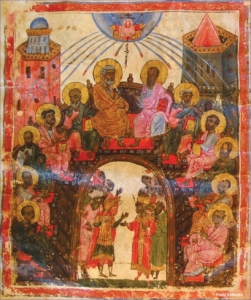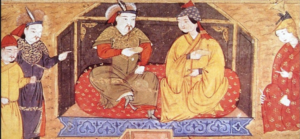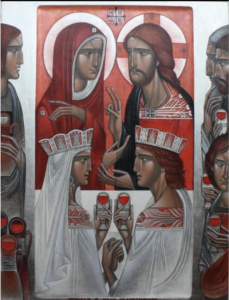For the value of fasting consists not in abstinence from food, but in withdrawing from sinful practices; since he who limits his fasting only to an abstinence from meats, is one who especially disparages it. Do you fast? Give me proof of it by your works! Is it said by what kind of works? If you see a poor man, take pity on him! If you see in enemy, be reconciled to him! If you see a friend gaining honour, envy him not! If you see a handsome woman, pass her by! For let not the mouth only fast, but also the eye, and the ear, and the feet, and the hands, and all the members of our bodies.
Let the hands fast, by being pure from rapine and avarice. Let the feet fast, by ceasing from running to the unlawful spectacles. Let the eyes fast, being taught never to fix themselves rudely upon handsome countenances, or to busy themselves with strange beauties. For looking is the food of the eyes, but if this be such as is unlawful or forbidden, it mars the fast; and upsets the whole safety of the soul; but if it be lawful and safe, it adorns fasting. For it would be among things the most absurd to abstain from lawful food because of the fast, but with the eyes to touch even what is forbidden.
Do you not eat flesh? Feed not upon lasciviousness by means of the eyes. Let the ear fast also. The fasting of the ear consists in refusing to receive evil speakings and calumnies. ‘You shall not receive a false report,’ it says. Let the mouth too fast from disgraceful speeches and railing. For what does it profit if we abstain from birds and fishes; and yet bite and devour our brethren? The evil speaker eats the flesh of his brother, and bites the body of his neighbour. Because of this Paul utters the fearful saying, ‘If you bite and devour one another, take heed that you be not consumed one of another. [Galatians 5:15]
+ St. John Chrysostom, Homily 3, On the Statues








